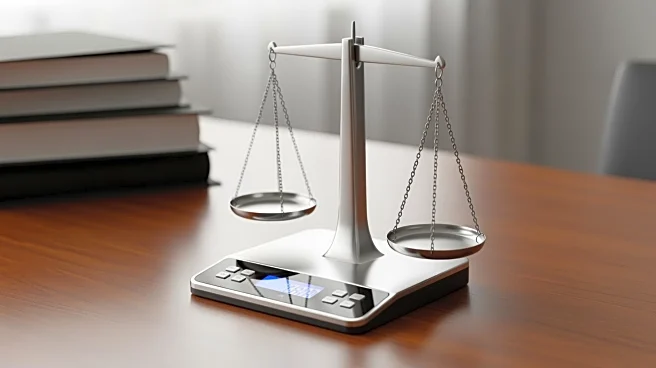What's Happening?
A recent analysis by Bloomberg Law highlights a significant rise in the misuse of artificial intelligence by litigants in legal proceedings. In 2025, the number of instances where lawyers and pro se litigants were found using AI-generated, or 'hallucinated,'
cases, quotes, and citations in legal briefs has increased sevenfold. This trend is attributed to the rapid adoption of generative AI tools by tech-savvy litigants who often fail to verify the accuracy of the AI-generated legal information before incorporating it into their case filings. The analysis underscores the growing challenge within the legal community to manage the risks associated with AI technology in legal research and documentation.
Why It's Important?
The increasing reliance on AI in legal proceedings poses significant implications for the legal industry. The misuse of AI-generated information can lead to erroneous legal arguments, potentially affecting case outcomes and undermining the credibility of legal professionals. This trend highlights the urgent need for the legal community to establish guidelines and best practices for the use of AI in legal research to ensure accuracy and reliability. The rise in AI-related legal missteps also underscores the broader challenge of integrating advanced technologies into traditional industries, where the balance between innovation and accuracy is critical.
What's Next?
As the legal industry grapples with the challenges posed by AI, there may be increased calls for regulatory oversight and the development of industry standards to govern the use of AI in legal research. Legal professionals and firms might invest in training and resources to better understand and manage AI tools, ensuring that they are used responsibly and effectively. Additionally, there could be a push for technological solutions that enhance the verification processes of AI-generated legal information, reducing the risk of errors in legal documentation.
Beyond the Headlines
The ethical implications of AI misuse in legal settings are profound, raising questions about accountability and the role of technology in decision-making processes. As AI continues to evolve, the legal industry must consider the long-term impacts of technology on legal ethics and the potential for AI to reshape the practice of law. This development also reflects a broader societal challenge of ensuring that technological advancements are harnessed in ways that uphold professional standards and public trust.














